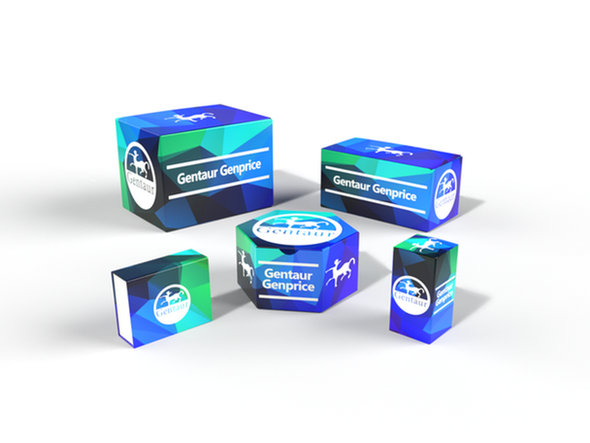740
Human A proliferation inducing ligand (APRIL) ELISA Kit | AE13981HU
- SKU:
- 740-AE13981HU
- Availability:
- Usually ships in 5 working days
Description
Human A proliferation inducing ligand (APRIL) ELISA Kit | AE13981HU | Gentaur UK, US & Europe Distribution
Species Reactivity: Human (Homo sapiens)
Abbreviation: TNFSF13
Alternative Name: APRIL; CD256; TALL2; TRDL-1; UNQ383/PRO715; ligand; TNF- and APOL-related leukocyte expressed ligand 2|a proliferation inducing ligand|tumor necrosis factor (ligand) superfamily member 13 transcript
Application: ELISA
Range: Request Information
Sensitivity: Request Information
Intra-Assay: ≤5.6%
Inter-Assay: ≤8.7%
Recovery: 0, 91
Sample Type: Serum, Plasma, Other biological fluids
Detection Method: Sandwich
Analysis Method : Quantitive
Test Principale: This assay employs a two-site sandwich ELISA to quantitate TNFSF13 in samples. An antibody specific for TNFSF13 has been pre-coated onto a microplate. Standards and samples are pipetted into the wells and anyTNFSF13 present is bound by the immobilized antibody. After removing any unbound substances, a biotin-conjugated antibody specific for TNFSF13 is added to the wells. After washing, Streptavidin conjugated Horseradish Peroxidase (HRP) is added to the wells. Following a wash to remove any unbound avidin-enzyme reagent, a substrate solution is added to the wells and color develops in proportion to the amount of TNFSF13 bound in the initial step. The color development is stopped and the intensity of the color is measured.
Product Overview: Tumor necrosis factor ligand superfamily member 13 is a member of the tumor necrosis factor (TNF) ligand family. Expressed at high levels in transformed cell lines, cancers of colon, thyroid, lymphoid tissues and specifically expressed in monocytes and macrophages. This protein is a ligand for TNFRSF17/BCMA, a member of the TNF receptor family. This protein and its receptor are both found to be important for B cell development. In vitro experiments suggested that this protein may be able to induce apoptosis through its interaction with other TNF receptor family proteins such as TNFRSF6/FAS and TNFRSF14/HVEM. Three alternatively spliced transcript variants of this gene encoding distinct isoforms have been reported.
Stability: The stability of ELISA kit is determined by the loss rate of activity. The loss rate of this kit is less than 5% within the expiration date under appropriate storage condition. The loss rate was determined by accelerated thermal degradation test. Keep the kit at 37°C for 4 and 7 days, and compare O.D.values of the kit kept at 37°C with that of at recommended temperature. (referring from China Biological Products Standard, which was calculated by the Arrhenius equation. For ELISA kit, 4 days storage at 37°C can be considered as 6 months at 2 - 8°C, which means 7 days at 37°C equaling 12 months at 2 - 8°C) .






